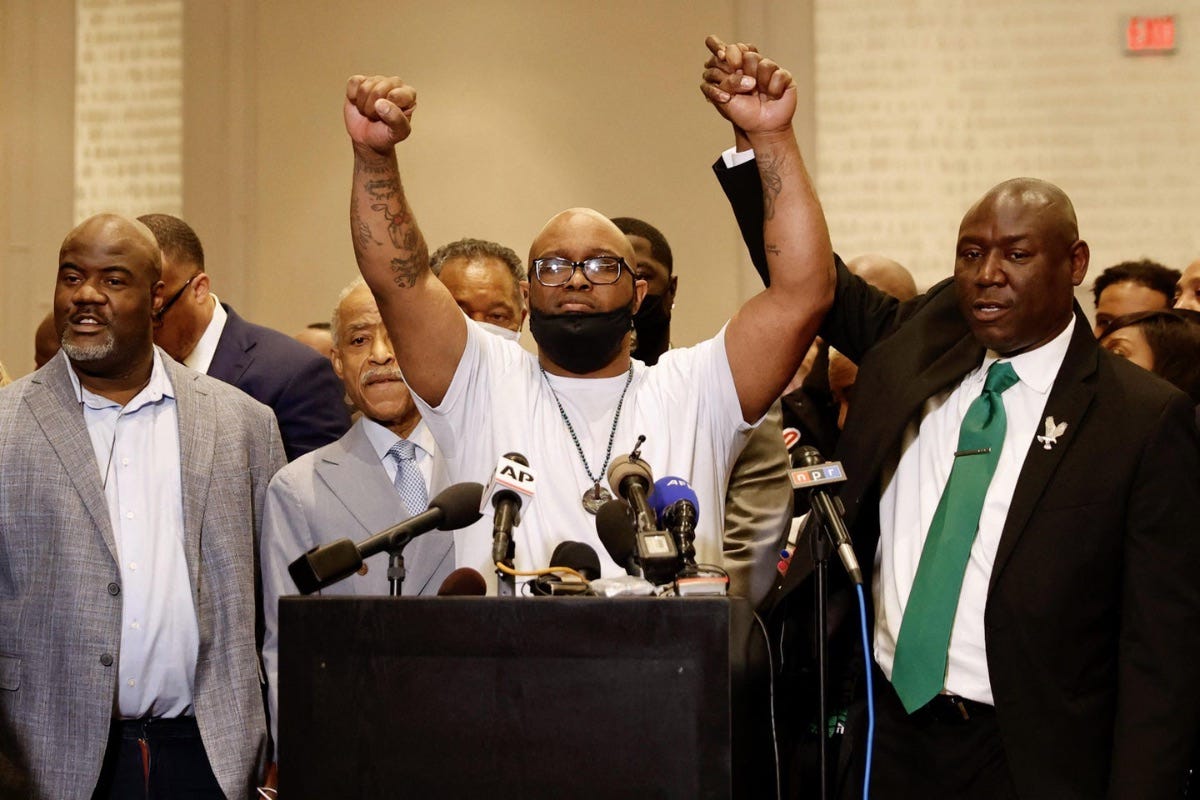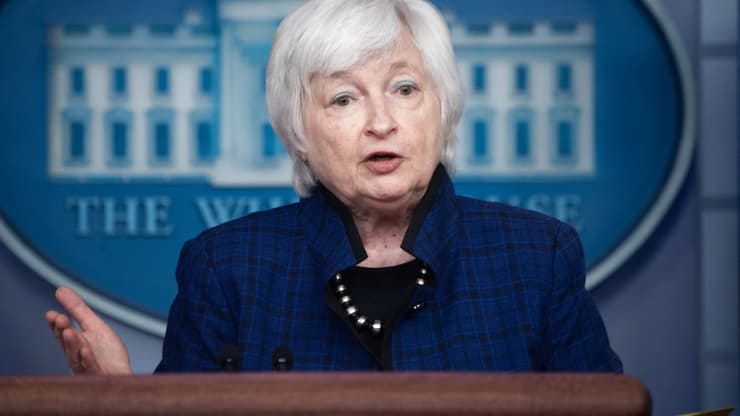Wake Up To Politics - May 24, 2021
Wake Up To Politics: RIP Bipartisanship (1/21-5/21)
Good morning! It’s Monday, May 24, 2021. Election Day 2022 is 533 days away. Election Day 2024 is 1,261 days away.
RIP Bipartisanship (1/21-5/21)
President Joe Biden famously promised on the campaign trail that his election would foster a new age of bipartisanship in Washington and a post-Trump “epiphany” on the Republican side of the aisle.
In the months since his inauguration, Democratic and Republicans have engaged in furious rounds of negotiations on a range of issues. But those talks appear to be sputtering — and if they don’t make progress this week, they might be done for good.
Take the negotiations on infrastructure. Biden proposed a sweeping $2.3 trillion plan last month, and Republicans responded with a more targeted $568 billion package. The White House then came out with a $1.7 trillion counteroffer on Friday, making cuts to Biden’s funding requests for rural broadband and other projects.
But the two sides now seem as far apart as ever: Sen. Shelley Moore Capito (R-WV) and the other GOP negotiators said that the revised proposal is still “well above the range of what can pass Congress with bipartisan support.”
Infrastructure is not the only issue to (forgive me) hit a roadblock. There is also the fight over whether to create a January 6 Commission, a proposed independent panel to investigate the Capitol riot. In the days after the attack, members of both parties called for such a commission; a bipartisan proposal was negotiated by Reps. Bennie Thompson (D-MS) and John Katko (R-NY).
The House passed the Thompson-Katko bill on Wednesday, but with House Minority Leader Kevin McCarthy (R-CA) opposed, only 35 Republicans backed the measure. Like many other Democratic priorities, the bill is now stalled in the Senate, where it could be subject to the first filibuster of the Biden presidency as early as this week.
The measure would need the support of 10 GOP senators to survive a filibuster; only four have expressed support so far, while many others — including Senate Minority Leader Mitch McConnell (R-KY) — have announced their opposition.
President Biden had also hoped to pass a bipartisan police reform bill by this week. “We need to work together to find a consensus,” he said in his address to a joint session of Congress last month. “But let’s get it done next month, by the first anniversary of George Floyd’s death.” That anniversary is Tuesday — a deadline that is expected to come and go.
Rep. Karen Bass (D-CA), Sen. Cory Booker (D-NJ), and Sen. Tim Scott (R-SC) have been attempting to hash out a police reform bill for months, but they remain divided over the question of qualified immunity, the doctrine which shields police officers from civil lawsuits. Democrats refuse to support a bill that doesn’t end qualified immunity; Republicans refuse to support a bill that does.
Biden will host members of the Floyd family at the White House on Tuesday, instead of holding the bipartisan bill signing ceremony he had hoped.

With the clock ticking on all of these issues, some Democrats are urging Biden to ditch the bipartisan talks entirely. Nothing motivates lawmakers like a deadline; the May 25 marker for police reform is expected to evaporate, and a self-imposed Memorial Day deadline for infrastructure talks is nearing as well.
After Memorial Day, lawmakers will leave town for recess and any momentum behind the bipartisan negotiations will likely fade. Some Democrats say that isn’t a bad thing: the Sunrise Movement, a leading progressive group, said in a statement that Biden is “making a huge mistake” by continuing to engage with Republicans.
And Washington Post columnist E.J. Dionne wrote last week that the fight over the January 6 Commission should be taken as a sign that Republicans are not serious negotiating partners.
“If bipartisanship is this difficult on what ought to be a straightforward quest to understand an assault against the place where politicians of both parties work, can anyone seriously expect a new age of comity?” Dionne wrote. “Congressional Democrats must remember this moment, or they will surrender their capacity to make the changes they and Biden promised.”
Policy Roundup: Economics
The week’s top economic news, by Davis Giangiulio.
As companies continue to struggle to find workers, some businesses are starting to raise wages to encourage employees to return. Bank of America announced last week that their minimum wage was going to be raised to $25 an hour, up from the current $20, while McDonald’s said that they were raising their minimum wage at company-owned restaurants to $13 an hour, with some locations’ figures rising even further to $15, and Chipotle said it would raise its average hourly wage to $15.
While critics argue that this could mean harder times for companies as they lose profits while raising wages and possibly raise prices, the White House has framed the developments in a positive light. “It is good policy and good for everyone to increase those wages a little,” Anita Dunn, senior adviser to President Joe Biden, told the New York Times.
The Biden administration has unveiled their highly anticipated plan for a global minimum tax, as they try to calm concerns about raising corporate taxes at home. The tax figure, which is designed to ensure that companies don’t move to less tax-burden heavy countries overseas when their home countries raise taxes, would be a 15 percent minimum for all countries that sign on.
That figure was lower than a number that was floated earlier in negotiations, 21 percent, which garnered support from France and Germany. However, Reuters reports that other countries were more supportive of a significantly lower 12.5 percent figure, and the United Kingdom was reluctant to support the U.S. plan too. The new figure may be a compromise that can be agreed upon. That would be critical to shore up support for Biden’s proposed increase of the corporate tax rate to 28 percent, which business leaders say, according to the AP, “would weaken their company’s competitiveness by making them pay more tax on global earnings than their international rivals do.”

More than two months since the passage of the American Rescue Plan (ARP), $350 billion in state and local aid is now being distributed, and states are starting to announce how they’re going to spend it. Gov. Mike DeWine (R-OH) made headlines when he announced that his state would launch a lottery for the COVID-vaccinated in order to incentivize people to get the shot. The plan is paid for by money from the ARP.
Gov. Roy Cooper (D-NC) unveiled his plan on Wednesday, detailing investments into education, expanding rural broadband, and assistance programs for leisure and hospitality industries hurt by the pandemic. Florida is using it to invest in education, and Connecticut is doing the same. However states still have more time to figure out exactly how they’re going to use the influx of cash, as only $105 billion has been given out so far.
Daybook
What’s happening in Washington today. (All times Eastern.)
President Joe Biden will receive his daily intelligence briefing at 9:50 a.m. Later, at 1:30 p.m., he will receive a briefing on the Atlantic Ocean hurricane outlook and preparedness efforts at FEMA headquarters.
Vice President Kamala Harris will join Biden for his intelligence briefing. At 2:15 p.m., she will host a listening session on “the digital divide,” and discuss how Biden’s infrastructure plan would expand access to high-speed internet.
White House Press Secretary Jen Psaki will hold a press briefing at 12 p.m.
The Senate will convene at 3 p.m. Following Leader remarks, the chamber will resume consideration of S.1260, the Endless Frontier Act, a bipartisan measure which would invest $110 billion in technology research over five years in an effort to compete with China.
Later, the chamber will move to consideration of the nomination of Chiquita Brooks-LaSure to be Administrator of the Centers for Medicare and Medicaid Services. At 5:30 p.m., the Senate will hold a cloture vote to advance her nomination.
The Senate Foreign Relations Committee will hold a closed-door hearing at 6 p.m. on the U.S.-Russia relationship. John Sullivan, the U.S. ambassador to Russia, will testify.
The House is not in session.
The House Administration Committee will hold a hearing at 11 a.m. on voter ID laws.
The Supreme Court will release orders at 9:30 a.m. and may announce opinions at 10 a.m.
Thanks for waking up to politics! If you enjoy reading this newsletter, I’d be so grateful if you’d consider donating to help support me and my work. If you want to show off your support for Wake Up To Politics, you can also buy some merchandise.
Also: don’t forget to tell your friends and family to sign up for the newsletter at wakeuptopolitics.com. And if you have any questions or comments, feel free to email me at any time.




